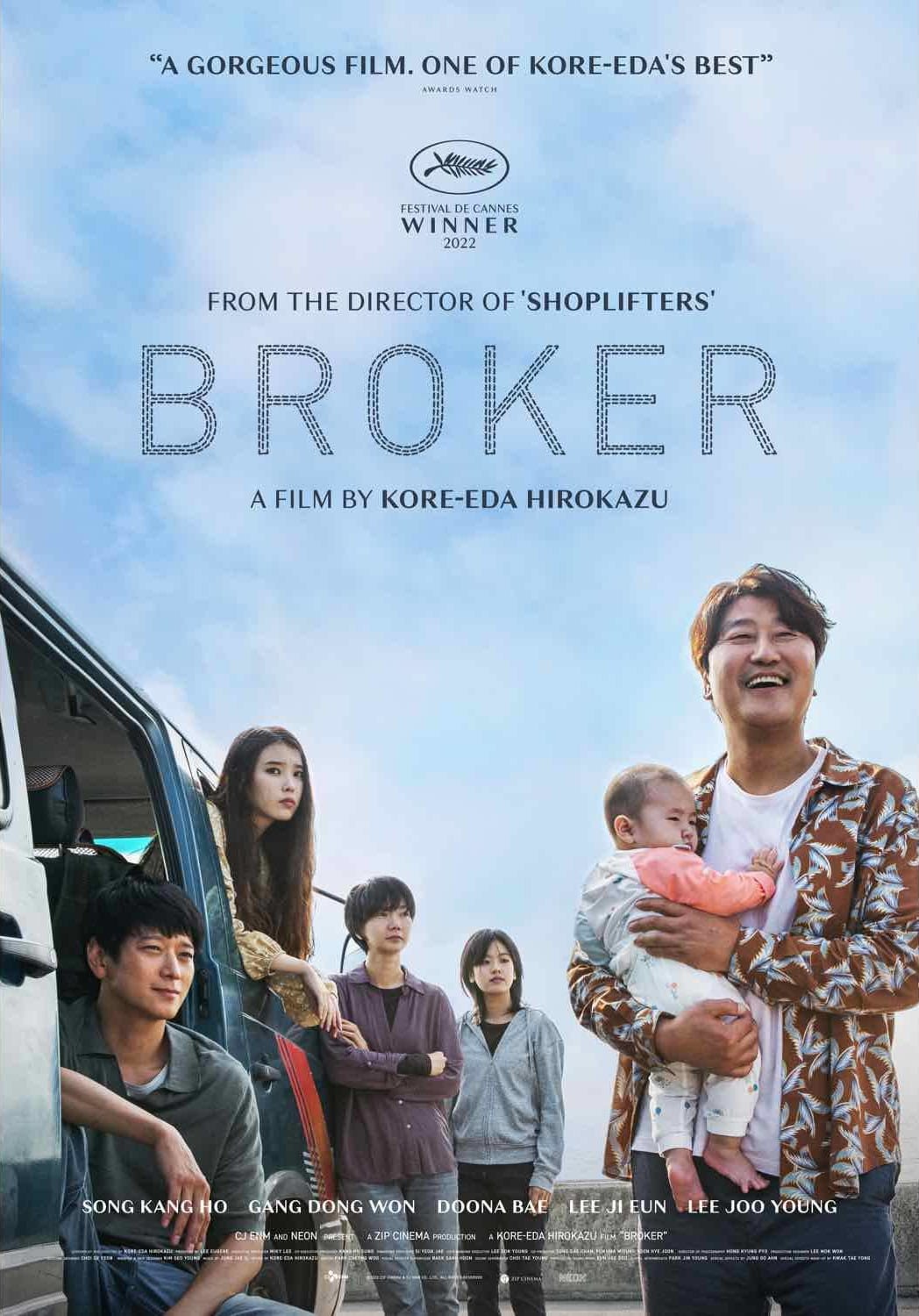Broker
For sale: Baby. Never worn.

Two men volunteer at an orphanage where unwanted babies can be anonymously dropped off. When one infant's mother changes her mind, and returns for her child, she stumbles onto the two men’s scam to sell “baby box” infants to affluent couples who can't have children of their own, circumventing the bureaucracy of the adoption system. Recognizing that her guilt over abandoning her child doesn’t change the fact that she can’t care for the child herself, the woman joins the two men on a journey to find the right couple, building an unlikely family of their own along the way, all while they are unknowingly being followed by the police.
I love Kore-eda Hirokazu’s films.
Shoplifters is an all time favorite of mine, and I am definitely looking forward to Monster. He tells stories about families, especially found families, stories concerned with what it means to be a family, how people become a family, and their everyday triumphs and tragedies.
That’s what Broker is about, a small group of people who were pushed together by fate, who not only help each other survive, but in the end, help each other be better. It’s also about those brief times in our lives where things are good as they are, those moments where we find acceptance and fulfillment together, moments that can’t last maybe, because for good reasons, for bad reasons, for indifferent reasons, life always moves on, but still… for that moment, things are good.
Set in South Korea—due to the practice there of having drop-off sites for unwanted babies called “baby boxes”—Broker stars Song Kang-ho (“Parasite”) in a touching and funny dramedy about child trafficking. It’s more nuanced than that, but… yeah, it’s about child trafficking, but y’know… the nice kind.
Anyway…
“This car is filled with liars,” a character jokingly notes at one point, and he’s not wrong, but the point of the film is… why did they lie? The film asks that you consider who these people are, where they’re from, and how they got there. The characters here are presented with compassion and understanding on their journey, encouraging us, the audience, to question not so much the what of the situation, but the why, the web of context and motivation underneath it all.
The film wants you to question your judgment of the characters. Yes, this is child trafficking, BUT… is it so much better for the baby to enter the foster system than it is to be sold to a loving family? There’s no answer here, or any kind of indictment for you deciding to lean either way, it’s more that the question hangs over everything.
Ultimately, the point of the film is that unimaginable life decisions often aren’t made easily, and they’re often made by people who have very few other options. It asks that, while watching, you remember that we’ve all stumbled at times, and that the people who were there for you, the ones who helped you back up, and kept you moving… that’s who your family is.
